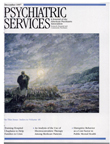Drugs of Abuse
As the son and grandson of pharmacists, I remember a time when the pharmacist's role as a health care professional and community educator was far more prominent than it is today. This timely, concise, and highly readable book on substances of abuse, written by an English pharmacist, highlights the valuable contributions that pharmacists are ideally suited to make to our collective endeavors in the mental health and addictions field.
Simon Wills, who is head of drug information for Portsmouth Hospitals National Health Service (NHS) Trust, has written a database for the NHS on drugs of abuse. His purpose in Drugs of Abuse is to provide the health care professional with a "detailed handbook … small, relevant, easy to read" on the subject of commonly abused substances.
Wills' focus is on the drugs themselves, including their chemistry, pharmacology, nomenclature, history, psychological effects, and toxicity. The book is organized into chapters that discuss a specific drug, such as LSD, or a class of drugs, such as opioids. Topics such as the adverse effects of IV drug injection, the use of drugs in the medically ill, and drugs in pregnancy and breast feeding are covered in separate chapters. The information is presented clearly, and it is detailed enough to answer the needs of virtually all practitioners other than specialists. The clinical literature is liberally and appropriately cited, which helps to establish a tone of authority on the subject matter, as well as to direct the reader toward pertinent articles.
One of the book's weaknesses is that it does not address the subject of dual diagnosis at all. Another problem is that the chapters are somewhat haphazardly organized. However, despite these shortcomings, the book fills an important niche in the available literature on substances of abuse.
The author does a fine job of meeting his objectives, and I believe Drugs of Abuse is a worthwhile addition to the bookshelf of any pharmacist, psychiatrist, primary care physician, nurse, or drug and alcohol counselor. Even mental health professionals who are not extensively involved in treating patients with substance abuse disorders could benefit significantly from learning or reviewing the information presented here. In fact, guidance counselors, parents, policemen, and legislators could also profit from reading this book. It is extremely valuable as a quick reference for anyone who needs information about a particular substance.
Dr. Kadish is medical director of psychiatric and addiction services at Marlborough (Mass.) Hospital and assistant professor of psychiatry at the University of Massachusetts Medical Center in Worcester.



